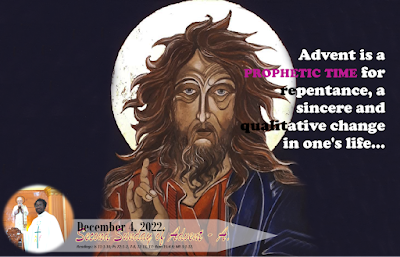On the duty to be honest.
September 22 2019: Twenty-fifth Sunday in Ordinary Time
A Latin proverb says, “Honesty with poverty is better than
ill-gotten wealth.” And another proverb adds, “Beauty without honesty is like a
rose without perfume.”
I one day read this entering one office, “Be honest, even if
others are not. Be honest, even if others will not. Be honest, even if others
cannot…” And Warren Buffett to say, “Honesty is a very expensive gift. Don't
expect it from cheap people.”
We live in a world in which, it seems honesty has been sent
away or has fled through the window, and dishonesty entered through the main
door. From those in high authority until the lower and simple citizen or
business holder, each one searches for his personal interests at the
disadvantage of the weak and the poor. We all talk of corruption. We see the
corruption in people in authority. We talk of corruption in offices. We talk of
corruption in school; corruption in social life and society and companies, and
sadly, even corruption in the Church and church leaders. Everyone seems doing
everything or all he can for money and self-gratification. Integrity, honesty
and the other like sound as past or off-dated.
In this context of our societies and communities, today’s liturgy
sounds the alarm. It is all about a call for honesty. The Prophet Amos, in the
first reading challenges on that virtue, while voicing out the dishonest
commerce by which the poor people and the weak become poorer and even more
dependent and at the limit, reduced to slavery. From that warning of the Prophet,
we read that, if the behavior of those in position of authority and in
possession of power does not change, the world will certainly end in a chaos,
in darkness; and that will be the day of the wrath of the Lord.
In order for the change to happen, not only that each one
has to work on himself, learning in his own to be honest, but, as Paul advises
in the second reading, we should also pray for those who have more
responsibility in the society and more relevant voice for change. Paul exhorts,
“First of all, I ask that supplications, prayers, petitions, and thanksgivings
be offered for everyone, for kings and for all in authority…” And St. Paul
gives the reasons why we should pray for them, “that we may lead a quiet and
tranquil life in all devotion and dignity.”
We all cry because of the increasing cases of corruption,
immorality and lost of integrity in our administrations and in the society. But
sadly, we never think of how to help those in position of authority to correct
those happenings by praying honestly for them. We accuse politicians of being
corrupt, but never do we pray sincerely for their conversion or for them to
work in restoring justice and integrity in the administrations.
The Gospel passage emphasizes on the fact of honesty through
the parable of the dishonest steward. The main point of this excerpt of Luke,
before being a call on that quality, is about what one could call a catechism
on money. The Lord warns his followers on money and calls for the right use we
should make of it.
In some people’s life, money seems to have taken the first
position and becomes the master. They do everything and all things for money.
It has really become their master and them its slaves. The idolatry of material
possession has reached it paroxysm. The Catechism of the Catholic Church, CCC.
2424, in a kind of commenting of the final sayings of Jesus in today’s Gospel
will says, “A theory that makes profit the exclusive norm and ultimate end of
economic activity is morally unacceptable. The disordered desire for money
cannot but produce perverse effects. It is one of the causes of the many
conflicts which disturb the social order. A system that "subordinates the
basic rights of individuals and of groups to the collective organization of
production" is contrary to human dignity. Every practice that reduces
persons to nothing more than a means of profit enslaves man, leads to idolizing
money, and contributes to the spread of atheism. ‘You cannot serve God and
mammon’.” Money must not become our master, but instrument for our use.
Then lets us come back to the parable. There is a clear
paradox which calls on our attention. The rich man’s steward, the main
character, was reported to him to be dishonest. Because of that dishonesty, he
was to be fired. Then, the dishonest man used what made the lose of his
position and of the confidence of his master as means to get the confidence and
esteem of many other people, “his master's debtors”. The Lord therefore ends
commenting and commending that attitude, as “acting prudently”. And we read,
“For the children of this world are more prudent in dealing with their own
generation than are the children of light.”
The lesson for us is here: money, when wisely used, can lead
building a genuine friendship. But, when we let our love for money, that is
greed, to dictate our conduct and actions, we become its slaves and die in
greediness. Thus, the proverb, “money is a good servant but a bad master.” The
material possession and riches are to be of man’s use, not the contrary, man
being used by money. Let us use the money for our
comfort, not for the sake of money, minting more and more money. No doubt, that
Money is an essential, and a necessary evil, almost indispensable thing in the
present-day world. But let us not make of that indispensable, the main reason
of our life.
The most unfortunate people today, are not those who have no
money; rather, those who have nothing else but money. Because, paradoxically, riches has become
their master and them, its slaves, having no peace of mind, no moral and
ethical values, no inner satisfaction. Rightly, the words of Jesus will always reecho
in us, “You cannot serve both God and mammon.”





Comments
Post a Comment